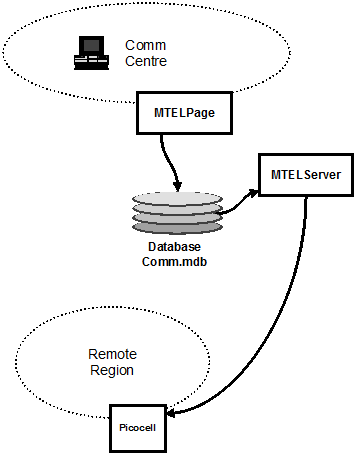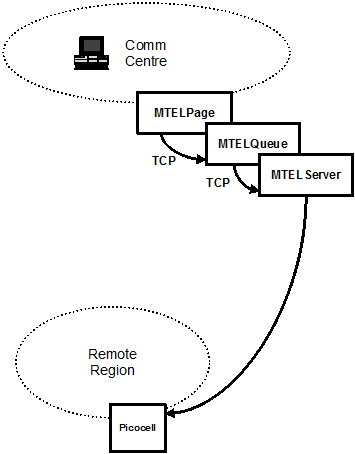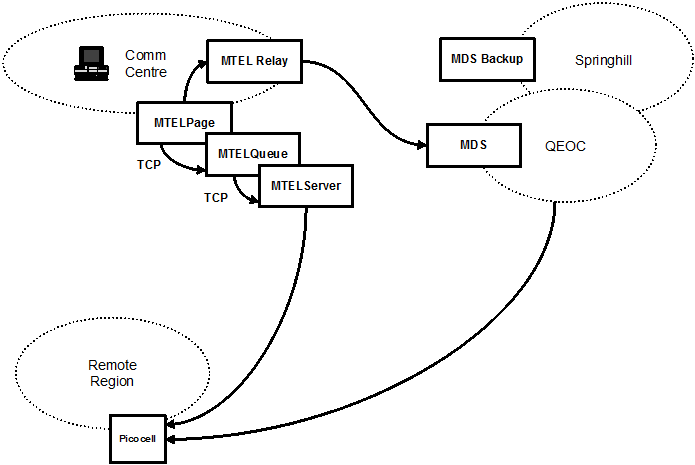MTELpage 2013 is a major upgrade to 2012.
The main changes are the way in MTELPage sends messages to the
local servers and it introduces a new messaging pathway to the
MDS system as the primary path for messaging.
MTELpage 2013 has had some minor aesthetic
upgrades however all the changes occur once the the Send button
is clicked.
Introducing MTELQueue:
MTELPage prior to the 2013 release
communicated messages to the MTELServer's via a shared Access
Database. The single comms.mdb file contained the entire queue
for the messages in the comms centre. In the past this technique
has produced file access problems causing the MTELServer's to
stop working as the file was corrupted. The diagram below
shows the message flow between applications prior to MTELPage
2013.

2013 introduces TCP as the main application
intercommunication technique. Inter-application communication
replaces the old technique of polling the common database file.
The database in the past provided the
mechanism by which MTELPage sent messages to particular
MTELServer's based on the type of modem connected to the
MTELServer. In the new system MTELPage now sends messages to the
MTELServer's via an application called MTELQueue and it is this
application which replaces the database and the polling SQL
requests on the comms.mdb.
MTELPage now sends the message to the
MTELQueue and the MTELQueue decides which MTELserve gets a
message. There is a TCP protocol which exists between all the
applications which assists the decision process. The diagram
below shows the relationship between the applications.

Introducing MTELRelay:
MTELPage prior to the 2013 sent messages to
the local MTELServer's which sent the messages over the switched
network using PSTN and ISDN modems. This will continue to
operate as a backup service.
In the new release there is a new pathway
for messages into the main messaging centres in QEOC and
Springhill. The pathway is via a new gateway which is yet
another application from MTEL called MTELRelay.
Messages are first sent via MTELRelay to
the MDS. The MDS delivers the messages to the remote centres. If
the MDS link fails, the messages are returned to MTELPage and
rerouted to the MTELQueue.


